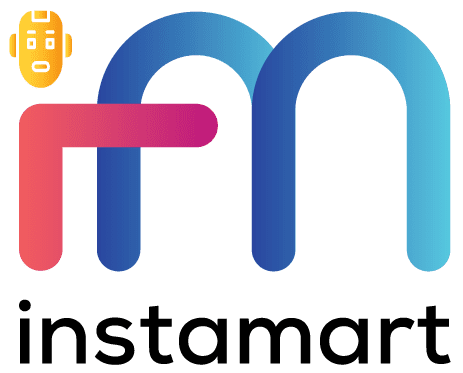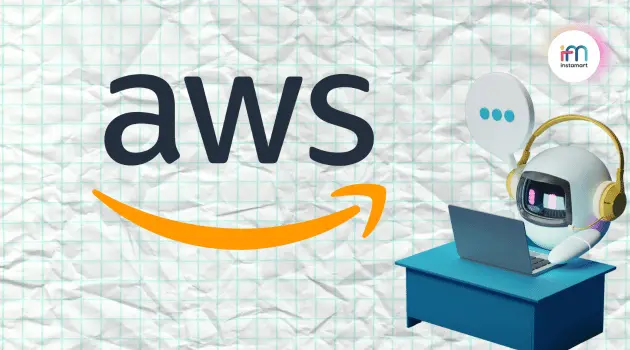AI has become a game-changer in various industries, facilitating automation, data analysis, and decision-making processes.
Many businesses constantly explore leveraging AI to optimize operations and achieve unparalleled efficiency. AI outperforms Conventional programming in predicting the characteristics of high-value customers, thus a preferred business case.
Comparing Business Cases: AI & Conventional Programming
A. AI in Enhancing Customer Service
AI-powered chatbots have revolutionized customer service in recent years. These intelligent virtual assistants can be programmed to handle a wide range of customer inquiries and provide instant responses, significantly reducing the need for human intervention. Customers can receive support and information around the clock, increasing overall customer satisfaction.
Here’s how robotics-driven solutions are revolutionizing customer service:
- Instantaneous Support with Artificial Intelligence Chatbots: AI-powered chatbots are at the forefront of customer service. These virtual assistants offer immediate responses and support, 24/7, without customers waiting for a human agent. Quick and efficient, chatbots handle routine queries, providing instant resolutions and elevating customer satisfaction.
- Personalization through Customer Data Analysis: Artificial Intelligence can analyze vast amounts of customer data to gain insights into preferences and patterns. This enables businesses to offer personalized recommendations, tailored experiences, and targeted marketing strategies. Customers feel valued, and interactions become more meaningful and relevant.
- Efficient Task Automation: Artificial Intelligence excels at automating repetitive and mundane tasks that once burdened customer service agents. By freeing them from routine chores, Artificial Intelligence allows agents to focus on handling complex issues, fostering better problem-solving and delivering exceptional service
See More: Vodafone using Google’s cloud and robotics to retain customers
B. Conventional programming
In the fast-paced customer service world, conventional programming is a fundamental pillar in delivering exceptional experiences. While newer technologies like Artificial Intelligence and automation have made significant strides, conventional programming remains integral to providing efficient and personalized support. Here are three key reasons why conventional programming plays a crucial role in customer service success:
- Customization and Tailored Solutions
Conventional programming allows businesses to develop tailored customer service solutions that align with their unique needs. With customization, applications can be designed to cater to specific workflows, business rules, and customer preferences, resulting in a more personalized and efficient service experience.
- Seamless Integration and Streamlined Efficiency
Conventional programming enables the smooth integration of various customer service channels like phone, chat, and social media. This seamless integration ensures that customers can switch between channels without losing context, facilitating more effective interactions. Furthermore, conventional programming allows for the automation of repetitive tasks, empowering agents to focus on addressing complex issues promptly, thereby reducing response times and enhancing overall efficiency.
- Data Analysis for Informed Decision-Making
Businesses can use conventional programming to analyze customer data to gain valuable insights into preferences, pain points, and behavior. This data-driven approach empowers customer service teams to make informed decisions, personalize interactions, and continuously improve service quality. Businesses can enhance customer satisfaction and foster long-lasting customer loyalty by leveraging data analytics.
As technology continues to evolve, businesses must embrace the power of these business cases to ensure customer service excellence and stay ahead of the competition.
II. Why AI for business cases
Both enhancing customer service through chatbots and utilizing predictive analytics for sales and marketing are valuable business cases. However, each case’s complexity and potential impact of implementing Artificial Intelligence technologies vary.
- Complexities
Implementing Robotics chatbots requires developing natural language processing (NLP) capabilities, which can understand and interpret customer inquiries effectively. Additionally, businesses must invest in instructing chatbots to provide accurate and helpful responses Additionally, businesses must invest in teaching chatbots to provide accurate and helpful responses.
2. Potential Impact
Enhancing customer service with Artificial Intelligence chatbots directly impacts customer satisfaction and retention. Businesses can significantly enhance their reputation and improve customer loyalty by providing personalized and instant support. On the other hand, leveraging predictive analytics for sales and marketing campaigns can lead to optimized resource allocation, increased revenue, and improved overall business performance.
3. Scalability and Adaptability
Artificial Intelligence solutions have the advantage of scalability and adaptability. As customer demands evolve, robotics systems can learn and improve, continuously enhancing the quality of customer service without requiring extensive manual updates.
While conventional programming plays a significant role in specific business cases, robotics’ complexities, potential for impact on customer service, and adaptability make it a superior choice for businesses seeking to excel in the ever-changing and customer-centric marketplace.
Read More: Google robotics Chat Service Introduces Swahili Language






